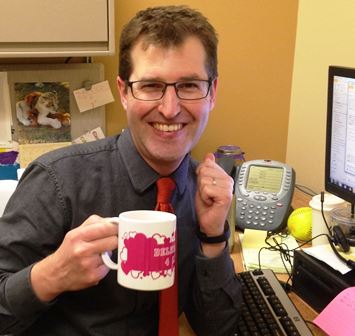Two Movies: “Suicide Squad” and “Don’t Think Twice”
Commentary on the movie rating system
When Suicide Squad was about to premiere in metroplexes across the world in early August, comedian Mike Birbiglia tweeted about the decision by the Motion Picture Association of America to give the movie a tame rating. Birbiglia wrote and directed the comedy Don’t Think Twice, which hit the screens two weeks earlier. Birbiglia didn’t understand why the MPAA deemed his movie more offensive.
The MPAA is sending a message that it just doesn’t tolerate violence—it celebrates it.
Here’s his tweet from August 2016:
Suicide Squad has machine gun killings and bombings and got a PG-13 rating. @Dontthinkmovie gets an R because adults smoke pot. Confusing?
When both movies came to my nearby second-run theater two weeks ago, I decided Birbiglia’s tweet deserved a further look. The odd double feature confirmed Birbiglia’s confusion. With the film’s execution-style killings, automatic weaponry, and visual effects that feel like a never-ending, looping explosion, the MPAA is sending a message that it just doesn’t tolerate violence—it celebrates it.
To be fair, I gave positive reviews to Star Trek into Darkness and Star Wars: The Force Awakens, movies that feature extensive action violence. I wouldn’t have had an issue with either of those movies carrying a stronger rating, but violence is presented differently in those two movies than in Suicide Squad. In Star Wars, main character Rey grapples with her newfound powers and is reluctant to use her powers as a weapon. While I felt the film missed an opportunity to explore the resistance of violence with main character Finn, he did struggle with the notion that he was born and bred to fight.
Suicide Squad, the latest Marvel Comics adaptation to hit the big screen, had every opportunity to delve deeper into its characters. The movie’s premise showed promise. After Superman’s death, a covert arm of the government tries to find a replacement for the caped one. Instead of a hero, they assemble a group of villains with enhanced powers. They are all criminals living in jail but are given an opportunity to use their powers to fight evil.
The movie’s main problem is that it focuses on the characters’ powers more than their stories, which leads to a presentation of violence as sport and a punch line. Character Deadshot (Will Smith) is the most sought-after hit man in the country. He can kill anyone—anytime—with an array of firearms. He’s a talented assassin, but we never learn how he came upon this career. We know he has a daughter that he loves, but that story is glossed over, and Deadshot just comes across as a guy who likes to shoot people. In one scene, he goes on a rampage, firing at will and eliminating one enemy after another. At the completion of this scene, a row of middle school girls behind me cheered wildly.
The enthusiasm from that group of girls is precisely why the major studios lobby for PG-13 ratings. A larger audience yields larger profits, of course, which is why director Judd Apatow wasn’t surprised by the PG-13, as he indicated in his reply to Birbiglia.
Tweet from August 3, 2016:
Judd Apatow @JuddApatow
Studios own the ratings board. Violence sells so they make pot and sex the scary thing so they seem caring.
Birbiglia replied, simply, “That makes a lot of sense and is insane.”
Apatow’s assertion also suggests that Birbiglia’s film faced difficult odds simply by being an independent film produced by Ira Glass of This American Life, and not a studio blockbuster produced by Steven Spielberg. Ensemble comedies about an improvisational troupe aren’t exactly hot tickets in Hollywood.
If overglorified violence isn’t your thing, then Don’t Think Twice offers an entertaining, albeit slow-moving alternative. The story follows a group of six actors/comedians whose improvisational comedy group is upended when one of the characters successfully auditions for a popular sketch comedy show on television, a la Saturday Night Live.
There are a couple of scenes where members of the cast smoke marijuana, and there is some foul language. I don’t have a feeling one way or another on the rating of Don’t Think Twice. A PG-13 rating wouldn’t have necessarily meant more box office success for Don’t Think Twice. It may not offend younger viewers, but a movie about 30-somethings who reach a crossroads in their careers and personal lives may not interest them.
Birbiglia may not even care if a 13-year-old sees his movie, but that isn’t really the point. In Birbiglia’s mind, violence gets a free pass. Parents should be talking to their kids about sex, language, and drug usage for sure, but they should be giving similar talks about violence both in society and its portrayal in the media.
My 12-year-old watched an R-rated movie (Chef) with me, but I would not take her to see PG-13 movies Guardians of the Galaxy and Suicide Squad. Ratings are a guide dictated by the studios, but I have started to learn to read the rating description and not just take the rating at face value. You can decide for yourselves on Suicide Squad and Don’t Think Twice by looking at their MPAA descriptions.
Don’t Think Twice: “Rated R for language and some drug use.”
Suicide Squad: “Rated PG-13 for sequences of violence and action throughout, disturbing behavior, suggestive content and language.”
Though this was more a commentary than a review, Suicide Squad receives 1.5 out of 4 stars and Don’t Think Twice receives 3 out of 4.
All reviews express the opinions of the reviewer, not necessarily the views of Third Way.




